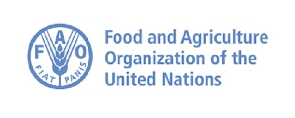While global attention has focused on the swarms of Desert Locusts attacking crops in East Africa, a number of other countries and regions are also confronting serious food security threats and require support, according to the Food and Agriculture Organization (FAO).
In a funding appeal released on Monday March 9, the FAO is asking for $900 million to reach 43 million vulnerable, agriculture-dependent people at risk of increased acute food insecurity in 22 countries including Burkina Faso, Chad, Ethiopia, Libya, Myanmar, Syria and Yemen.
This represents the FAO component of the UN system’s consolidated 2020 humanitarian appeal. It does not include the additional $138 million that the Organization is seeking for countries in East Africa affected by the ongoing Desert Locust upsurge.
“The majority of people facing acute food insecurity globally – due to conflicts, the impacts of climate change or economic constraints – rely on agriculture for their livelihoods,” said FAO Director-General, QU Dongyu.
“We need to provide them with the necessary tools to cope with these challenges, enhance their resilience and bounce back.”
FAO’s 2020 appeal outlines a range of initiatives aimed at boosting local food production and enhancing nutrition, while strengthening people’s resilience to shocks like conflicts and insecurity, pests and extreme weather.
Activities vary from country to country, but FAO’s goal is to help people produce nutritious food, earn an income and become self-reliant as fast as possible. This can be done by providing agricultural inputs such as seeds, tools, fertilizers and other inputs for crop farming, livestock restocking, by providing animal feed and veterinary care and distributing fishing gear, as well as cash assistance which helps people meet their immediate needs while continuing to produce food.
FAO is also working with communities to help them strengthen their approach to farming and natural resource management, raise their agricultural productivity, and pursue livelihood diversification strategies.
Click to view details



Business News of Tuesday, 10 March 2020
Source: laudbusiness.com

















